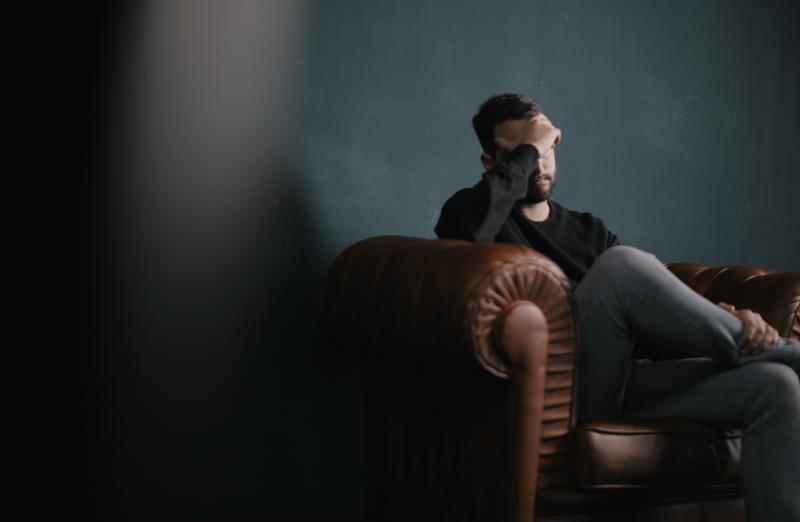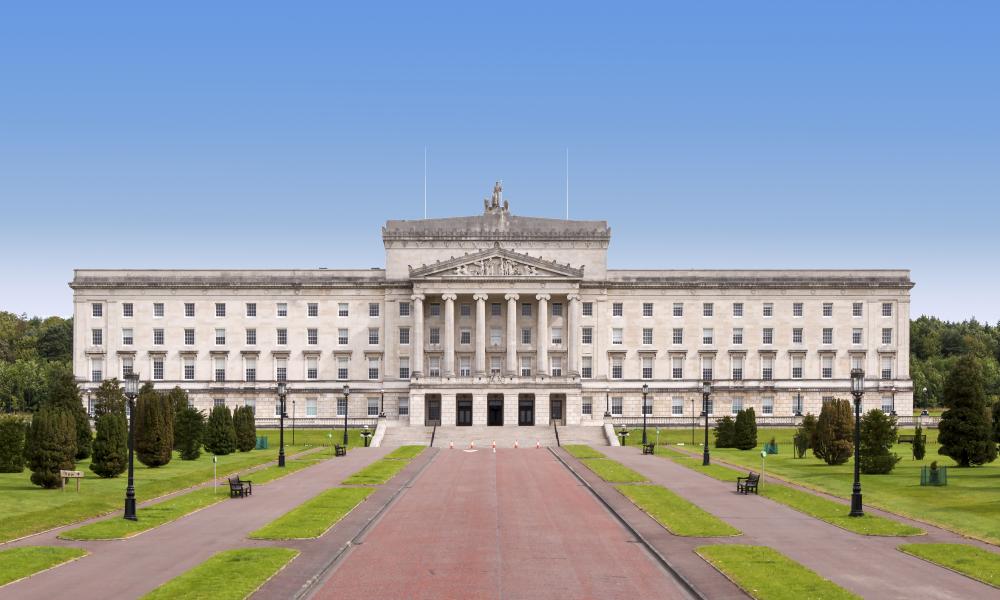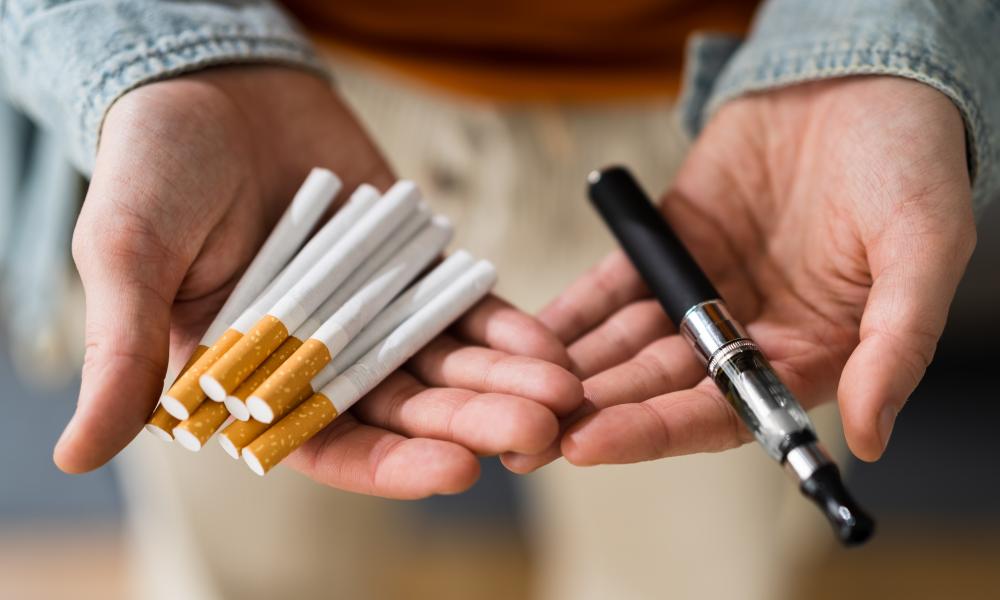
In this blog, Ciara Reynolds and Joanna Purdy from the Institute of Public Health (IPH) discuss gambling and mental health, effects of the COVID-19 pandemic and explore the potential public health impact of gambling regulation. Ciara and Joanna are Public Health Development Officers at IPH. They recently presented evidence to the Northern Ireland All Party Group on Reducing Harm Related to Gambling and submitted views to the consultation on a draft Mental Health Strategy for Northern Ireland.
Gambling and mental wellbeing – what’s the harm?
Gambling can be highly addictive, with significant harms affecting not only the individual, but their family, friends, and wider society. Problem gambling is often hidden particularly as the majority of gambling is now taking place online. Problem gambling means that those who gamble experience negative consequences and a possible loss of control.
The impact of gambling on mental health is complex. Problem gambling has negative effects on social determinants (income, housing, employment) as well as health behaviours (substance use) and family and social relationships. In addition, stigma associated with problem gambling can act as a barrier to early engagement with support services instead driving people to engage with debt collectors, ‘loan sharks’ and even criminal activity. Problem gamblers only bear a proportion of the mental health burden of gambling; other gamblers, as well as the family and friends of gamblers, can be affected in similar ways.1
In these ways problem gambling undermines the determinants of good mental health at practically every level.
Gambling in Ireland and Northern Ireland – a cause for concern?
Gambling is more popular in Northern Ireland than the rest of the UK. The prevalence of problem gambling in Northern Ireland is the highest in the UK. Men are four times more likely than women to be at moderate risk or experience problem gambling. The number of people gambling online doubled between 2010 and 2016.2

In Ireland, there are no reliable estimates on the prevalence of problem gambling however it is reported that almost two thirds of adults have gambled in the previous year. Ireland has the highest online gambling losses per capita globally and the third highest overall gambling losses per capita (€2.1 billion p.a.).3
Gambling and mental ill-health– a two-way street?
Pathological gambling is the first non-substance addiction recognised as a mental and behavioural disorder in the WHO International Classification of Diseases.4 Problem gambling can both contribute to the development of mental ill health, and it can also be a behavioural feature of existing mental illness – something that is experienced on a personal level as a ‘vicious cycle’. Problem gambling is more common among those with mental ill health, across a broad set of disorders including anxiety and depressive disorders, obsessive compulsive disorder, phobias, panic disorder, eating disorder, psychosis, attention deficit hyperactivity disorder, post-traumatic stress disorder and substance dependency.5 It is estimated that almost three out of five gamblers have a substance use disorder and two out of five have a mood or anxiety disorder.6
There is a complex relationship between gambling, self-harm and suicide. The extent of gambling-related suicides is difficult to estimate, partly due to a lack of reporting and awareness during inquests.7
What changes were seen in the COVID-19 pandemic?
The overall numbers of people gambling may have decreased during COVID-19 because gambling venues have been closed in line with restrictions. However, the overall decline may be masking harmful changes in gambling behaviour for some. In the UK, whilst around a third of all regular sports bettors stopped gambling during COVID-19, one in six started new forms of gambling and one in three gambled more often.8
Moderate risk or problem gambling was linked to:
- trying new forms of gambling
- higher online gambling spends
- higher awareness of gambling advertising
- higher response to gambling advertising
- gambling more often
- lower levels of wellbeing during lockdown
In Ireland, mental health and gambling addiction charities reported increases in the number of people seeking help for gambling addiction problems during lockdown.3
What role for regulation?
Both Ireland and Northern Ireland have proposed commitments for better regulation of gambling. Regulation has fallen far behind the pace of change of industry with an increasingly appealing, accessible and affordable range of betting offers and mainstreaming of the activity into sport, online gaming, politics and reality television.
The current programme for government in Ireland commits to the establishment of an independent gambling regulator and in both jurisdictions, there is a growing recognition for modernising the law.9,10,11 Ireland and Northern Ireland are not alone in considering reforms. In England, the Gambling Act is also under review.12
Public health is becoming more central to policy discussions on a regulatory framework for gambling. International evidence suggest that this should include:
- Recognition of the impact of gambling on population mental health and health inequalities
- Adoption of a ‘prevention first’ approach that seeks to reduce the occurrence of problem gambling, as well as respond to people in difficulty
- Regulations, with systems for enforcement and monitoring, that reduce the appeal, accessibility and affordability of gambling with particular focus on children and vulnerable communities
- Enhanced monitoring of gambling behaviours, gambling-related harms and associated mental health impacts among both children and adults through government surveys and research.
- A specialised service for people with problem gambling alongside enhanced detection, referral and management across the service.
A training programme for frontline workers to support enhanced identification of problem gambling, provide brief counselling interventions and pathways for referral.
Institute of Public Health responses
In November 2020, the Institute of Public Health responded to the Northern Ireland Assembly All Party Group on Reducing Harm Related to Gambling. The All Party Group (APG) on Reducing Harm Related to Gambling has been established to address issues associated with gambling harm in the community. Gambling is a significant public health and social issue in Northern Ireland. The Institute highlighted the need for a public health, population level approach to prevent and address gambling-related harms. New legislation is required, with a new regulatory framework and independent regulatory structures put in place. Read the consultation response here.
In March 2021, the Institute of Public Health responded to the Department of Health for Northern Ireland consultation on the Draft Mental Health Strategy 2021-2031. The Strategy is designed to improve mental health outcomes for people in Northern Ireland and sets out a new vision for mental health in Northern Ireland, as well as 29 high-level actions to take forward significant strategic change over the next decade. The Institute highlighted the scale of problem gambling in Northern Ireland and the impact on mental health and provided recommendations to better understand the extent of the problem and how individuals and families can be supported. Read the consultation response here.
For further information on support and help in gambling in Ireland, click here.
Support services in Northern Ireland are available through the Public Health Agency.
References
- Rogers RD, Wardle H, Sharp CA, Dymond S, Davies TJ, Hughes K, Astbury G. Framing a public health approach to gambling harms in Wales: Challenges and opportunities. 2019. Bangor University. Available at: https://www.bangor.ac.uk/psychology/research/gambling/docs/Public-Health-Approach-to-Gambling-inWales-ENG.pdf
- Department for Communities 2016 Northern Ireland Gambling Prevalence Survey. 2017. Available at: https://www.communities-ni.gov.uk/sites/default/files/publications/communities/2016-ni-gamblingprevalence-survey-main-report.pdf
- Kerr A, O’Brennan J, Vazquez Mendoza L. Gambling trends, harms and responses. Ireland in an International context. Maynooth University. 2020. Available at: https://gamblingawarenesstrust.ie/wp-content/uploads/2021/03/MGRG-Gambling-in-Ireland-report.pdf
- Wardle H, Degenhardt L, Ceschia A, Saxena S. The Lancet Public Health Commission on gambling. The Lancet Public Health. 2021;6(1):e2-3.
- Wardle H. Exploring area-based vulnerability to gambling: who is vulnerable? Gambling and Place Research Hub, Geofutures. 2015. Available at: https://www.westminster.gov.uk/media/document/exploring-area-based-vulnerability-to-gambling-related-harm-who-is-vulnerable--findings-from-a-quick-scoping-review-%E2%80%93-13-july-2015
- Lorains FK, Cowlishaw S, Thomas SA. Prevalence of comorbid disorders in problem and pathological gambling: Systematic review and meta-analysis of population surveys. Addiction. 2011; 106(3): 490-498.
- John, A. Wardle, H. McManus, S. Dymond, S. Scoping Current Evidence and Evidence-Gaps in Research on Gambling-Related Suicide. 2019. Available at: https://www.gamblingcommission.gov.uk/PDF/Report-3-Gambling-related-suicide-andsuicidal-behaviours.pdf
- Wardle H, Donnachie C, Critchlow N, Brown A, Bunn C, Dobbie F, Gray C, Mitchell D, Purves R, Reith G, Stead M. The impact of the initial Covid-19 lockdown upon regular sports bettors in Britain: Findings from a cross-sectional online study. Addictive Behaviors. 2021;118:106876.
- Department of the Taoiseach. Programme for Government: Our Shared Future. 2020. Available at: https://www.gov.ie/en/publication/7e05d-programme-for-government-our-shared-future/
- Department for Communities. All Party Group on Reducing Harm Related to Gambling. 2020. Available at: https://www.gamharmapg.org/inquiries/regulation-of-gambling-in-northern-ireland-a-new-approach
- Gaming and Lotteries (Amendment) Act 2019 (Act 44 of 2019) Gaming and Lotteries (Amendment) Bill 2019 (Bill 28 of 2019). 2019. Available at: https://www.oireachtas.ie/en/bills/bill/2019/28/
- Review of the Gambling Act 2005 Terms of Reference and Call for Evidence. 2020. Available at: https://www.gov.uk/government/publications/review-of-the-gambling-act-2005-terms-of-reference-and-call-for-evidence/review-of-the-gambling-act-2005-terms-of-reference-and-call-for-evidence


